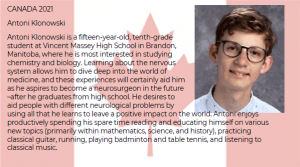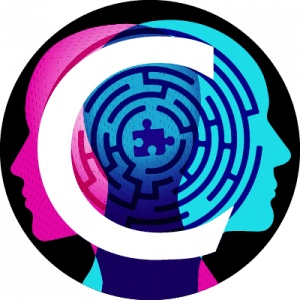 Assistant Professor
Assistant Professor
Department of Anatomy, Physiology, and Pharmacology, University of Saskatchewan
Applications are invited from qualified individuals for a full time, tenure-track Assistant Professor position in the Department of Anatomy, Physiology, and Pharmacology (APP) at the University of Saskatchewan to begin July 1, 2022
(https://medicine.usask.ca/department/schools-divisions/biomedical.php).
Applicants must have a PhD degree and post-doctoral experience in a field related to systems neuroscience. The successful applicant will be expected to develop a CIHR-fundable research program in or related to systems neuroscience focused on studying the organization and function of neural circuits and how they are altered in brain disorders (examples include, but are not limited to, schizophrenia, affective disorders, autism, epilepsy, Alzheimer’s disease, Parkinson’s disease, and stroke). Experience using viral vector-based approaches to selectively manipulate or measure activity of discrete populations of brain cells in vivo will be considered an asset. The successful applicant’s research will be expected to fit with the university’s One Health Signature Area (https://research.usask.ca/research-excellence/signature-research-areas.php).
The successful candidate will have access to significant research resources on the University of Saskatchewan campus. Neuroscience researchers are housed in the Colleges of Medicine, Arts and Science, Engineering, Veterinary Medicine, Pharmacy and Nutrition, and Kinesiology at the university. Laboratory space for this position will be available in the Health Sciences D wing, which opened in 2013, and currently houses faculty associated with the Neuroscience Cluster (https://neuroscience.usask.ca/).
The Western College of Veterinary Medicine (https://wcvm.usask.ca/), Cannabinoid Research Initiative of Saskatchewan (https://crissk.squarespace.com/), and Cameco MS Neuroscience Research Centre (https://medicine.usask.ca/centres/cameco.php) will provide additional resources for neuroscience research in animal models. The campus is also home to The Vaccine and Infectious Disease Organization-International Vaccine Centre (https://www.vido.org/), a world-class institute focused on infectious diseases and vaccine development research, and the Canadian Light Source (https://www.lightsource.ca/), Canada’s only synchrotron.
The successful applicant will also be expected to teach, supervise, and mentor students at undergraduate and graduate levels. Thus, evidence of strong instructional skills and experience is an asset, particularly as they would enhance the new Biomedical Neuroscience Undergraduate Program offered by the APP Department (https://programs.usask.ca/arts-and-science/biomedical-neuroscience/) and the APP Graduate Program (https://grad.usask.ca/programs/anatomy-physiology-pharmacology.php).
The University of Saskatchewan’s main campus is situated on Treaty 6 Territory and the Homeland of the Métis. The University of Saskatchewan is located in Saskatoon, SK, a city with a diverse and thriving economic base, a vibrant arts community and a full range of leisure opportunities. The University has a reputation for excellence in teaching, research and scholarly activities, and offers a full range of undergraduate, graduate, and professional programs to a student population of over 24,000.
The salary band for an Assistant Professor Position is from $98,178 to $117,978. This position includes a comprehensive benefits package which includes a dental, health and extended vision care plan, pension plan, life insurance (compulsory and voluntary), academic long-term disability, sick leave, travel insurance, death benefits, an employee assistance program, a professional expense allowance, and a flexible health and wellness spending program.
The Department of Anatomy, Physiology, and Pharmacology and the College of Medicine are committed to equity, diversity and inclusion, and Indigenous Engagement (https://medicine.usask.ca/about-us/edi.php#MessagefromtheDean). In working towards our goal of increased diversity in the Department of APP, we especially encourage applications from women and Indigenous peoples, and preference may be given to qualified applicants from these groups. We value all forms of representation and welcome applications from any individual who feels they can contribute to the broader diversity of our Department. All qualified candidates are encouraged to apply; however, Canadian citizens and permanent residents will be given priority.
Interested candidates must submit, via email, a cover letter, detailed curriculum vitae, a brief statement of research interests and plans (3 pages or less), a teaching statement (1 page), a statement on equity, diversity and inclusion (EDI) that includes a reflection on the candidate’s experiences with EDI and how those experiences will enrich this aspect of the department (1/2-1 page), and contact information for three references. Incomplete applications will not be considered.
Dr. A. Mohamed
Associate Professor and Interim Head, Department of Anatomy, Physiology, and Pharmacology
107 Wiggins Road, Rm 2D01.8
Saskatoon, SK Canada S7N 5E5
Telephone: (306) 966-4085
Email: appadmin@usask.ca
Review of applications will begin mid-January, but applications will be accepted and evaluated until the position is filled. The anticipated start date is July 1, 2022.
The University of Saskatchewan has instated a number of health and safety requirements for faculty, staff and students in consideration of the COVID-19 pandemic. As of January 4, 2022, being fully vaccinated against COVID-19 is a condition of employment and proof of vaccination will be required. The University will consider accommodations requests for individuals in accordance with the requirements of The Saskatchewan Human Rights Code, 2018.






 Congratulations to Antoni Klonowski from Brandon, Manitoba, who won the third place for Canada at the 2021 International Brain Bee competition, held virtually November 5-8, 2021. The IBB is the world’s premier neuroscience competition for teenagers.
Congratulations to Antoni Klonowski from Brandon, Manitoba, who won the third place for Canada at the 2021 International Brain Bee competition, held virtually November 5-8, 2021. The IBB is the world’s premier neuroscience competition for teenagers.  The Department of Psychology at Concordia University invites applications for a tenure-track faculty position at the assistant professor level in behavioural neuroscience. Duties include research, teaching at both the graduate and undergraduate levels, and service to the institution. The ideal candidate will conduct innovative research using animal models to study the neural mechanisms of behaviour, and how this process changes across the life span. The successful candidate will apply multidisciplinary and translational approaches to identify key cellular processes controlling the brain. This position builds on existing strengths in research on addiction, motivation, cognition, learning and memory, biological rhythms and neurophysiology at Concordia University. The successful candidate will become a full member of The Center for Studies in Behavioral Neurobiology and will have access to state-of-the-art facilities at Concordia University, including the PERFORM center, the Center for Microscopy and Cell Imaging, and the Center for Biological Applications of Mass Spectrometry.
The Department of Psychology at Concordia University invites applications for a tenure-track faculty position at the assistant professor level in behavioural neuroscience. Duties include research, teaching at both the graduate and undergraduate levels, and service to the institution. The ideal candidate will conduct innovative research using animal models to study the neural mechanisms of behaviour, and how this process changes across the life span. The successful candidate will apply multidisciplinary and translational approaches to identify key cellular processes controlling the brain. This position builds on existing strengths in research on addiction, motivation, cognition, learning and memory, biological rhythms and neurophysiology at Concordia University. The successful candidate will become a full member of The Center for Studies in Behavioral Neurobiology and will have access to state-of-the-art facilities at Concordia University, including the PERFORM center, the Center for Microscopy and Cell Imaging, and the Center for Biological Applications of Mass Spectrometry.
 DIVISION of SCIENCES – TE ROHE A AHIKAROA
DIVISION of SCIENCES – TE ROHE A AHIKAROA Job Type: Part-time, Contract
Job Type: Part-time, Contract